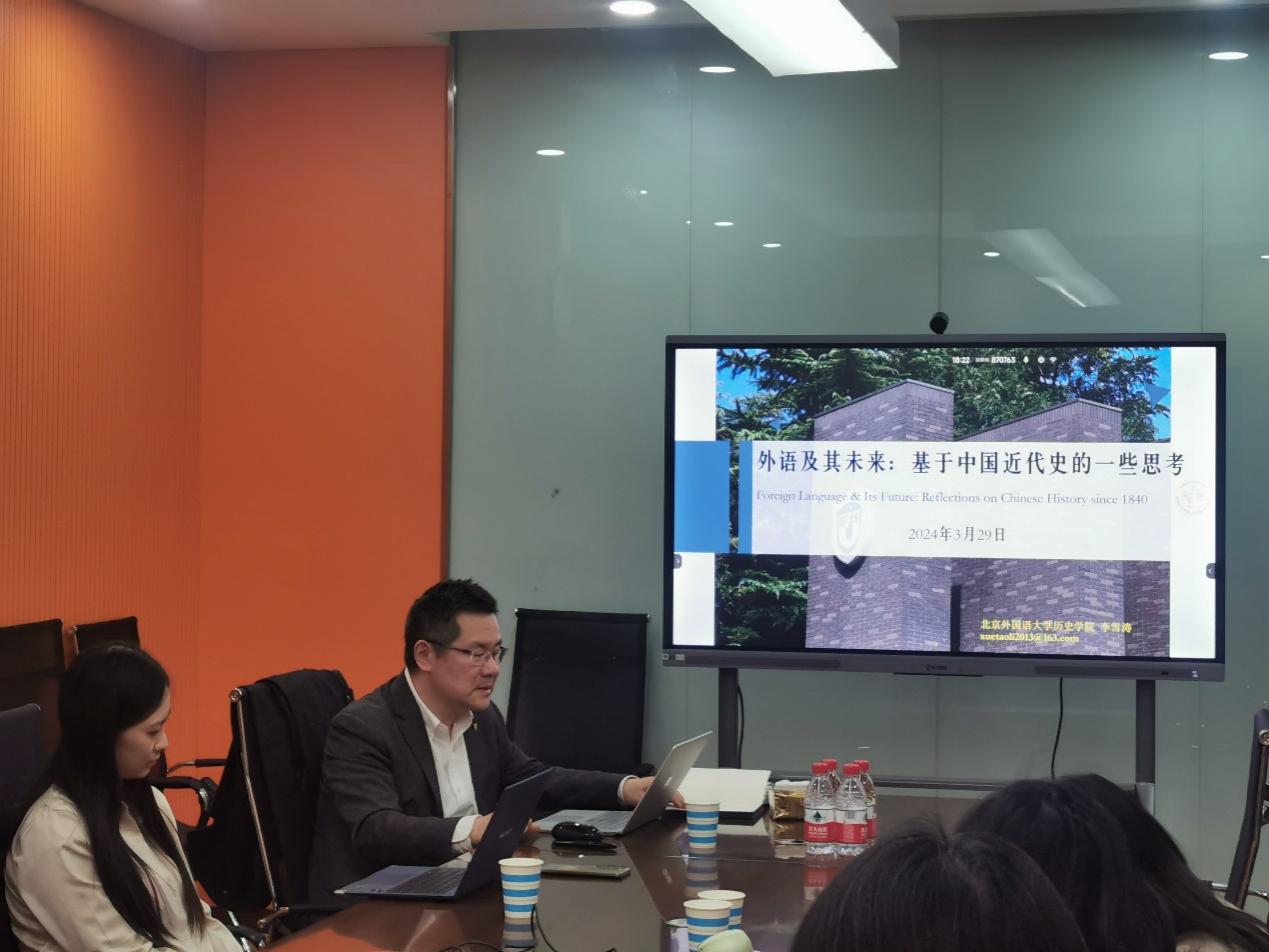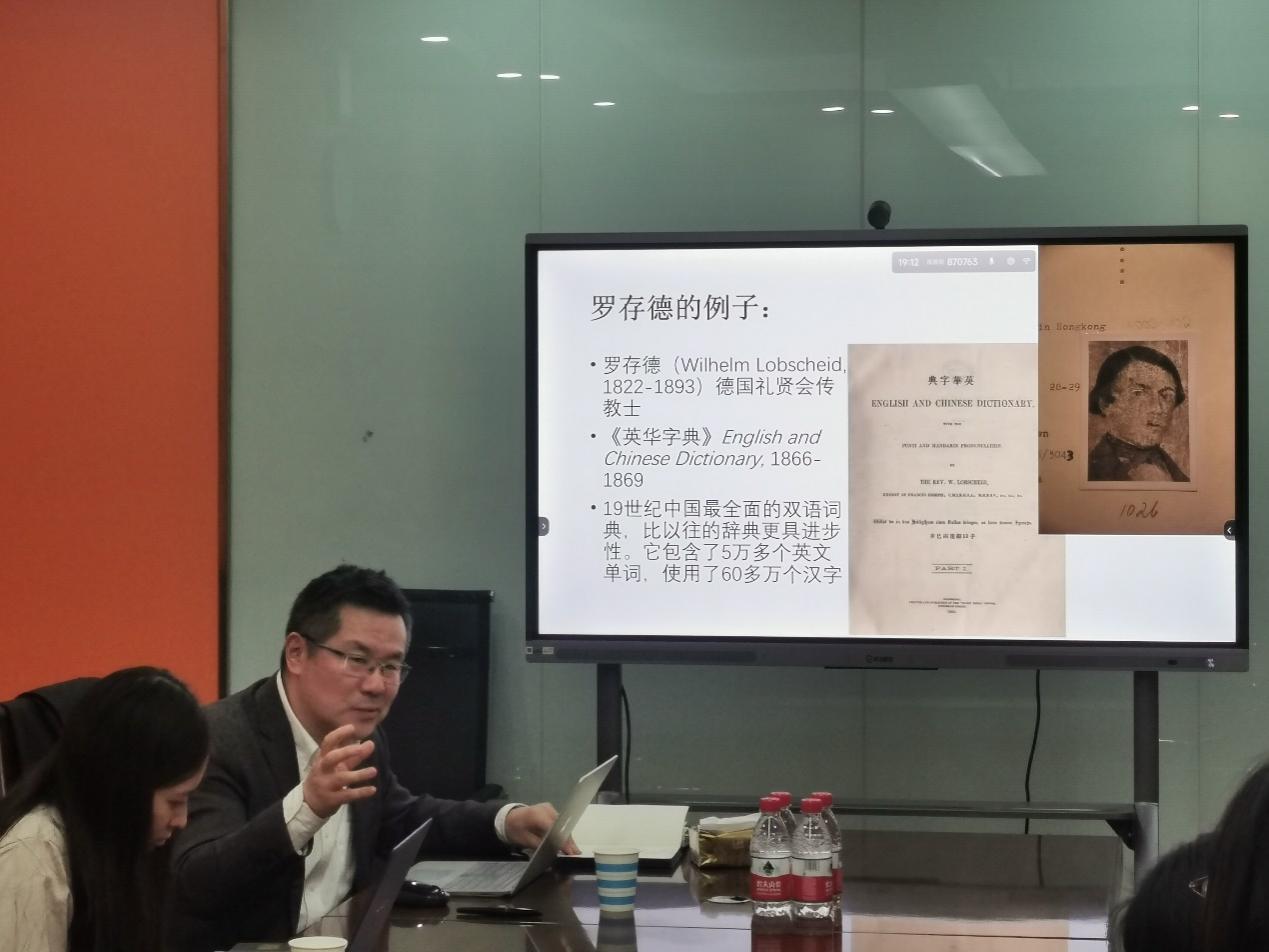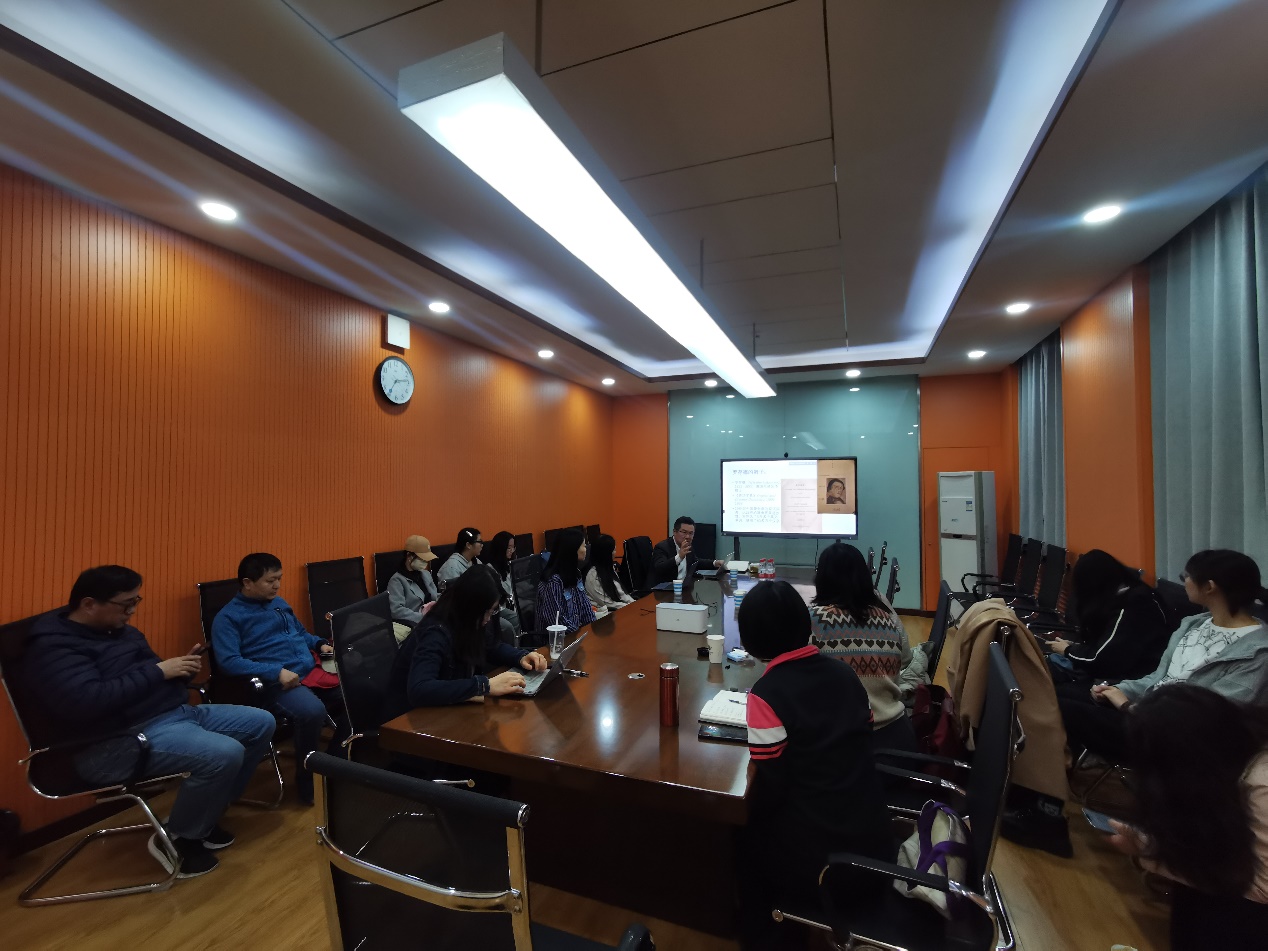On March 29th, Prof. Li Xuetao, the Dean of the School of History, Director of the Institute of Global History, and an Academician of the German National Academy of Sciences at Beijing Foreign Studies University, delivered a remarkable lecture at the invitation of the Center for Regional and Country Studies of Nankai University. The lecture was presented to the students and teachers of the School of Foreign Studies, focusing on the theme “Foreign Languages and Their Future: Some Reflections Based on Modern Chinese History”. The lecture attracted teachers and students from all departments of the School. The dean of the School of Foreign Studies, Professor Yan Guodong, also joined and gave a speech.
In the lecture, Li Xuitao shared his views on the transformation of the liberal arts in the new era, emphasizing the importance of learning from the past when examining the present. The present cannot be understood without considering the past and suggested that history holds answers to today's problems.
Prof. Li Xuetao first reviewed the history of foreign language teaching in China, analyzing the functions of official institutions such as the Siyi Guan, the Huitong Guan, the Si-Yi-Guan, the Hui-tong-si-yi Guan, and the Peking Tongwen Guan. Then, quoting the literature, he analyzed the manifestations of change in China and the West from the perspective of the transformations since 1840, with the term “saddle period” at the center. During the “saddle period,” the past and the future, the traditional and the modern, intertwined, collided, overlapped, and ruptured. Based on the reflections of scholars such as Wang Ermin and Zhang Hao, Li Xuetao attested to the intellectual impact that China experienced during this period. Additionally, according to the research of Western scholars like Osterhammer and Furbrook, Li Xuetao highlighted the ideological shifts that the West underwent during this period. Li Xuetao emphasized the importance of not only recognizing appearances, such as the development of foreign language colleges from the Siyi Guan and Tongwen Guan but also considering the depth of history, such as how the foreign studies school evolved under the influence of modernity. Finally, Li Xuetao expressed his trust and expectations in today's foreign language students, hoping that they can enhance their skills in organizing documents and become sincere and competent individuals.
During the interactive session, the students and teachers asked questions enthusiastically, and the professors shared their opinions and suggestions. All attendees benefited greatly from the discussion in a warm atmosphere. The lecture was successfully concluded with thunderous applause.






